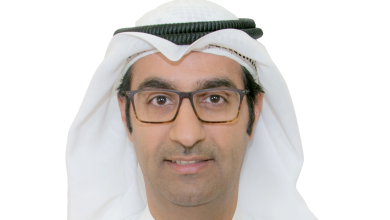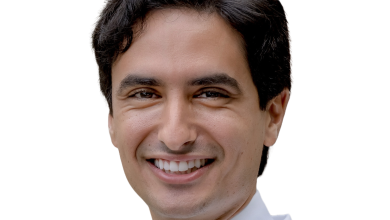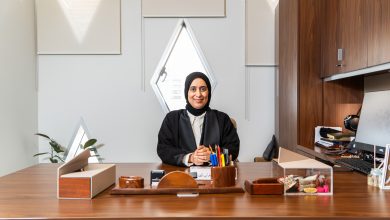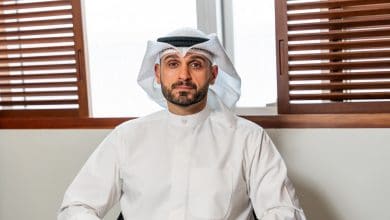Dari Alhuwail
A Collaborative and Multi-Disciplinary Approach
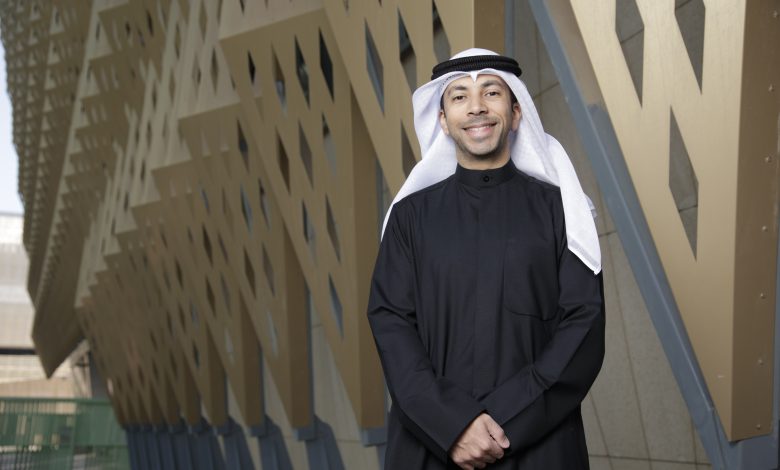
Some of the most promising research today transcends traditional boundaries between disciplines and involves collaborations among departments and institutions around the world. This type of collaborative and multi-disciplinary research has inspired Dari Alhuwail throughout his career, and his achievements have now propelled him to one of his most significant honors yet as the winner of the 2022 Jaber Al-Ahmed Prize for Young Researchers from the Kuwait Foundation for the Advancement of Sciences (KFAS) in the field of natural sciences and mathematics.
“My focus has always been multi-disciplinary,” said Alhuwail, an associate professor in the Department of Information Science in the College of Life Sciences at Kuwait University. Alhuwail works in the fields of digital health, health informatics, data governance, and cybersecurity. He said these topics lend themselves well to “collaborating with many colleagues from various disciplines, reflecting the nature of the sciences happening today.”
For Alhuwail, a desire to use computer methods to improve the lives of his fellow Kuwaiti citizens and those in the broader world has led him down this career path. “When it comes to digital health and cybersecurity, these broad domains touch our lives on an everyday basis through our own health, how we interact with various tools, technologies, and data, and how we protect our digital identities and digital assets,” said Alhuwail. These fields have implications for social and economic life, including the potential to improve population health, reshape patient care in clinics and hospitals, and strengthen businesses. “I hope that my research does not only tackle national priorities but also impacts humanity,” said Alhuwail.
One of his latest projects involves exploring the cybersecurity vulnerabilities of small and medium enterprises in Kuwait. The project has received funding from KFAS. “Unfortunately, the small and medium enterprises are often challenged with the demands of the digital world and keeping up with cybersecurity,” said Alhuwail. “What we want to study is how resilient they are after a cyberattack and provide them with evidence-supported guidance on how to bounce back and continue.”
At the same time, through a collaboration with the Health Informatics Unit that he helped establish at the Dasman Diabetes Institute (DDI), a subsidiary of KFAS, Alhuwail is looking for ways to use data, tools, and systems, including artificial intelligence (AI), to improve the health of Kuwaitisthe society. Through another collaboration with the Geohealth Lab at the same institute, Alhuwail is also researching the relationship between geography and health in Kuwait.
Before returning to Kuwait to serve at Kuwait University, Alhuwail studied in the United States. He earned a bachelor’s and a master’s degree in management information systems from the University of Arizona. Then, he completed a doctorate in information systems at the University of Maryland in Baltimore County.
Throughout his career, Alhuwail has sought opportunities to exchange and collaborate with colleagues at conferences and events in several countries. One of the most exciting of these opportunities came in 2022 when he attended the Science and Technology in Society Forum in Kyoto, Japan. He participated in the event as one of four young Kuwaiti scientists KFAS selected to represent the nation’s best young scientists. At the forum, Alhuwail met other scientists, policymakers, and business leaders and attended workshops on topics, including how science and technology shape the economy and society and how to communicate scientific results effectively. “The forum was insightful and helped me understand what directions prominent research institutions and scientists are headed, how science translated into society, and our role as scientists,” he said.
Alhuwail is also involved in several professional associations and other institutions, reflecting his diverse research interests. He is a fellow of the International Academy of Health Sciences Informatics and the American Medical Informatics Association. He is also an adjunct faculty member in the School of Medicine at the University of Dundee in Scotland, where he advises graduate students in health informatics. He has been recognized for his excellence in teaching and has published dozens of scientific papers in peer-reviewed journals.
With this long list of accolades behind him, Alhuwail is thrilled that his achievements are now being recognized on such a big stage with the Jaber Al-Ahmed Prize for Young Researchers. “It really means the world to me to win this prize,” he said. However, he has no plans to slow down. “The prize also comes with a huge responsibility that I should continue my work,” Alhuwail said. “There is a big responsibility to pass on my knowledge, train and educate future scientists, and inspire others to achieve because, at the end of the day, this research is for our country and humanity.”
Byline: Marianne Dhenin

